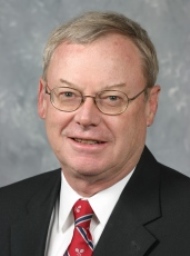OCT 30, 2012 ROTARY IN REVIEW:
Dean Eric Schwartz
President Dan McKeown called the meeting to order at 12:30. Jerry Faletti led Rotarians in singing America the Beautiful with Doug Hartford on the piano. Steve Nyhus gave the invocation. Jill Petsel introduced visiting Rotarians and guests.
For the president’s report, McKeown recognized the greeters Mike Burns and Steve Nyhus. Next week’s program is former NHL hockey player, Gordie Roberts. The Thursday Fellowship Breakfast is Annette Kuyper from the Minnesota Department of Military Affairs. It was noted in the president’s In the News, Bob Garland completed his most recent book, Antique on Woodhouse Road and Nancy Anderson was recognized as one of the Top Women in Finance by City Business. And, Nancy Anderson was also recognized for turning in her Red Stripe card.
Bo Aylin talked about the changes in the upcoming Salvation Army kettle drive during the holiday season. The big change is that there will be four shifts over four days, The times will be 11AM to 1PM. The dates are December 10, 12, 13 and 14. The change was made so that the effort is made during the times that most people are on the Skyway. Rotarians were encouraged to sign up soon.
Dressed in a Hawaiian shirt, Blake Davis promoted the December 6 Holiday Party. He noted that Dennis Boom’s Hawaii condo is one of the key live auction items. He and his family won the bid in a prior year and have stayed in the condo. Key features are the location near Waikiki beach, a Mercedes car, a wonderful view and much play equipment to use.
President Dan asked Rotarians to vote on two bylaw changes. He declared that there was a quorum and asked Rotarians to vote following the presentation of the bylaw information. Jim Kosmo described the two bylaw proposed changes. Because the club has decreased in size recently, and it is increasingly hard to recruit candidates, the proposal is to change the number of director candidates from twelve to eight. The second bylaw change is to change the required financial audit from no less frequently than every five years. The previous requirement was every three years. Both bylaw changes were unanimously approved by the membership.
The introduction of the speaker was made by David Laird. He congratulated the Rotary speaker on selecting a speaker with the content, expertise and timing to be here today.
Eric Schwartz became Dean of the Humphrey School of Public Affairs one year ago and hit the road running. With his 25 years of experience in the U.S. State Department, the United Nations and as a white house staffer, his experience, access to current date and world wide contacts gives him unusual insight to international affairs. As Dean of the school, he is responsible to provide leadership to the school, students and faculty, to help the public understand the complex foreign policy challenges and the problems and to expand the scholarship and discussion of international issues.
According to the speaker, former president Bill Clinton had it right, “it’s the economy, stupid.” It has turned out to be a successful strategy in recent elections. The focus this year is on social and economic issues.
Having served three presidents advising on national security, the speaker contends that there should be more discussion on foreign policy. America’s role in the world is changing. We will continue to be the dominant force in the world but our margin for error will be very small and this will affect our ability to influence events. He poised the question, “how do we assess the policy standing of our candidates? The best way is to consider our foreign policy emphasis of the last two decades as a guide. They can be divided into four camps:
Traditional Realists – followers include the first George Bush, Colin Powell and Brent Skowcraft. They would emphasis continuity, negotiations with our advisories, support of the United Nations and a reluctance to elevate American values and democracy.
Liberal Internationalists – followers include president Obama. These followers would advocate strong bilateral participation, involve the United Nations, promote American values, democracy and human rights and nation building at home.
Neo Conservatives – followers include Ronald Reagan, Paul Wolfowitz and Elliot Abrams. They are committed to American exceptionalism and unilateral military power. They believe Americans are the chosen people and demand world leadership.
Hobson camp (our way or the highway) – They believe in anticipatory and quick response to events, skeptical of international organizations and the philosophy that the U.S does not need to be the top dog. Elliott Cohen and John Bolton are supporters of this direction.
So where does each candidate stand based on their policy statements and their identified policy advisors? The speaker believes that Obama would fall in the Liberal Internationalist camp. For Governor Romney, the jury is still out. His advisors fall in three camps: Traditional Internationalist, liberal internationalist and the Hobson camps. The question for discussion is how would each candidate react to some future international crisis?
In summary, the speaker believes that a Romney administration would be more hawkish than an Obama administration. In any case, the speaker  believes that foreign policy deserves to be more a part of the public debate before the election.
believes that foreign policy deserves to be more a part of the public debate before the election.
President Dan thanked the speaker and adjourned the meeting at 1:30.
Jay Pfaender, Scribe

